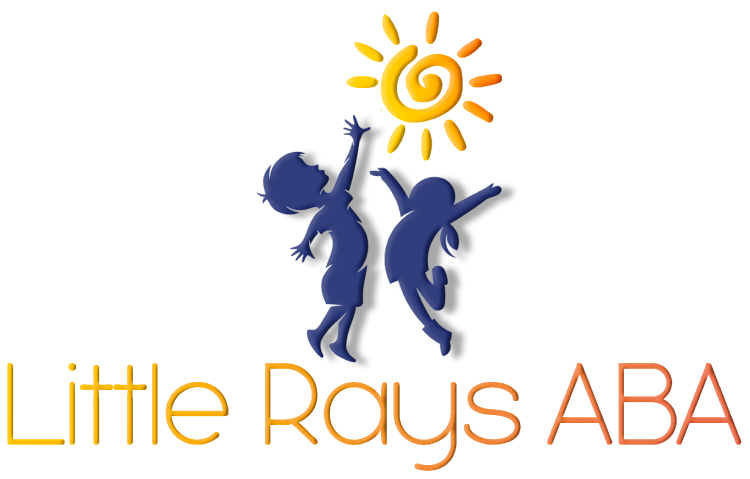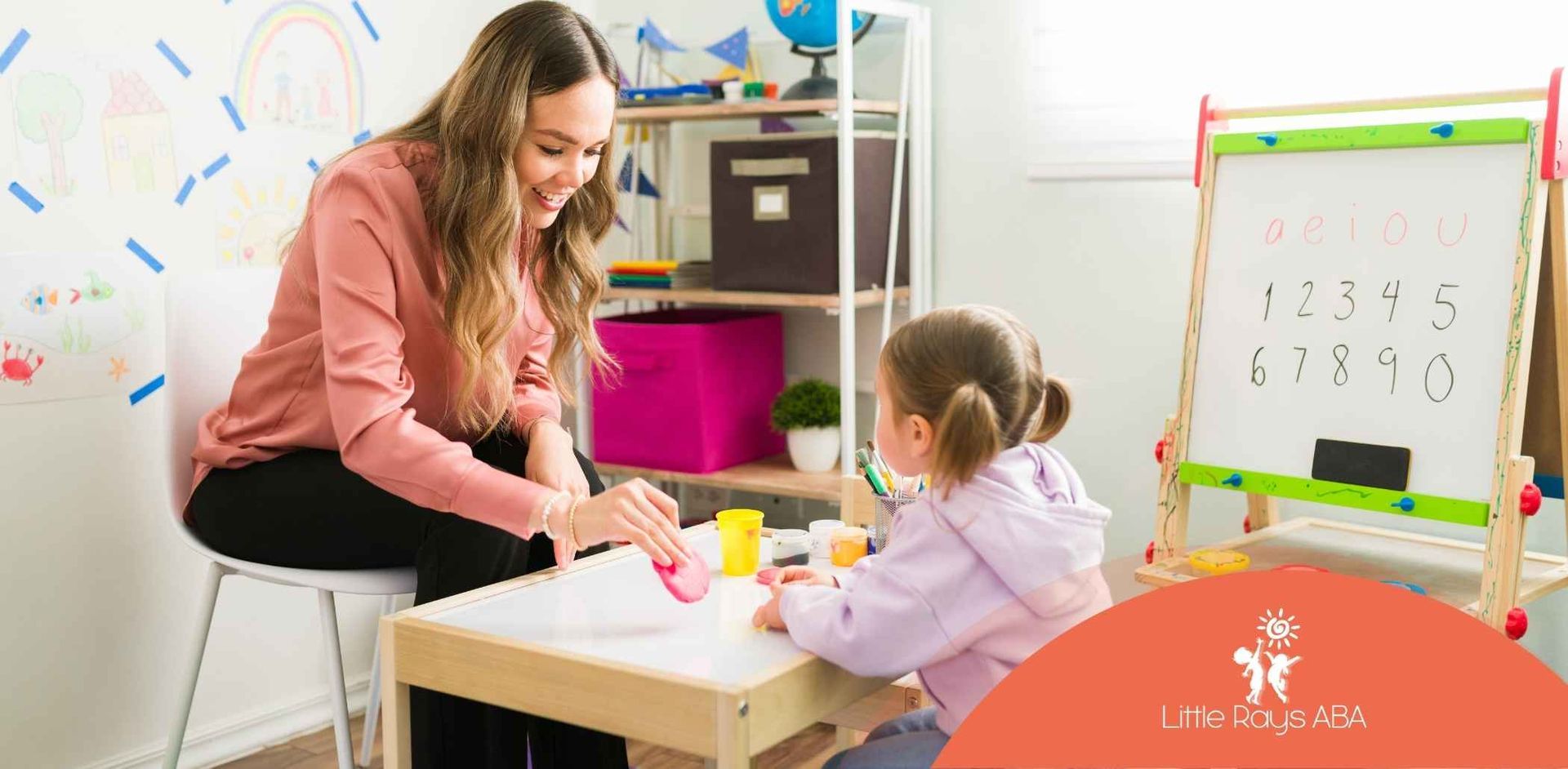
How ABA Therapist Certification Ensures Effective Therapy
Qualifications and Certifications
When searching for an effective Applied Behavior Analysis (ABA) therapist, it's vital to understand the qualifications and certifications that ensure they are well-prepared for the job. Below is an overview of the essential certifications for ABA therapists, as well as the steps to becoming a BCBA-D.
Certifications for ABA Therapists
ABA therapists can hold various certifications, depending on their educational background and experience. The following table provides a summary of the different types of certifications:
| Certification | Education Level | Role |
|---|---|---|
| Registered Behavior Technician (RBT) | High School Diploma | Assist BCBAs and BCaBAs in implementing behavior-analytic interventions |
| Board Certified Assistant Behavior Analyst (BCaBA) | Bachelor's Degree | Conduct behavior-analytic services under the supervision of a BCBA |
| Board Certified Behavior Analyst (BCBA) | Master’s Degree | Provide behavior-analytic services and supervise RBTs and BCaBAs |
| Board Certified Behavior Analyst – Doctoral (BCBA-D) | Doctoral Degree | Similar to BCBA, but with additional postdoctoral training |
It's essential to select therapists who possess the certifications aligned with their roles. For more detailed information on the exact qualifications and responsibilities of ABA therapists, refer to our article on ABA therapist qualifications.
Becoming a BCBA-D
Pursuing the BCBA-D certification requires a doctoral degree, with a focus on continued education and expertise in behavior analysis. Despite the advanced education, it's important to note that the BCBA-D designation does not grant additional privileges beyond the BCBA certification.
To become a BCBA-D, individuals must:
- Hold a doctoral degree in behavior analysis or a related discipline.
- Complete postdoctoral training that emphasizes the application of behavior analysis.
- Obtain the BCBA certification by meeting one of three experience options, passing the BCBA exam, and completing the BCBA application process. The BCBA application fee is $245.
The following table highlights the steps to becoming a BCBA-D:
| Step | Requirement |
|---|---|
| Educational | Doctoral degree in a relevant field |
| Training | Postdoctoral training emphasizing behavior analysis |
| Certification | Obtain BCBA certification |
| Maintenance | Meet ongoing requirements as outlined in the BCBA Handbook |
For parents and family members of children with autism or individuals with ASD, ensuring the therapist holds the necessary ABA therapist certifications is critical. It assures they have the expertise to provide effective therapy. To delve deeper into the certification process, visit our article on ABA therapist experience.
Application and Examination
Attaining the Board Certified Behavior Analyst-Doctoral (BCBA-D) certification involves a comprehensive application process and a rigorous examination. Below, we explore the steps and details related to these critical components.
BCBA-D Application Process
The process of applying for the BCBA-D designation requires specific steps to ensure that candidates meet the high standards set by the Behavior Analyst Certification Board (BACB).
Eligibility Requirements:
- Individuals need doctoral or postdoctoral training in behavior analysis.
Application Submission:
- Candidates must complete a detailed application form.
- A fee of $245 is required for application processing (Teach.com).
Experience Options:
- Candidates must fulfill one of the BACB's experience options:
- Supervised independent fieldwork.
- Practicum.
- Intensive practicum.
Reattempt Policy:
- If candidates do not pass the exam on their first attempt, they have up to two years to reattempt the exam.
| Requirement | Details |
|---|---|
| Degree | Doctorate or Postdoctorate |
| Application Fee | $245 |
| Experience Options | Supervised fieldwork, practicum, intensive practicum |
| Reattempt Period | Two years |
BCBA Exam Details
The BCBA exam is designed to assess candidates' comprehensive knowledge and skills necessary for becoming a master-level clinician in behavior analysis. Below are the essential details about the exam:
Exam Structure:
- Consists of 150 multiple-choice questions.
- Based on the fourth edition of the BCBA/BCaBA task list.
Preparation:
- Various mobile apps are available for exam preparation.
- Prospective students can consider high-quality ABA programs for comprehensive training.
Passing Rates:
- The BACB provides a chart outlining the BCBA exam passing rates of programs across the United States to guide potential behavior analyst professionals in choosing suitable ABA master's programs.
| Aspect | Details |
|---|---|
| Questions | 150 multiple-choice |
| Task List | Fourth Edition |
| Preparation Aid | Mobile apps identified by Mobile App Daily |
| Passing Rates Information | Provided by BACB |
These steps and requirements ensure that aspiring BCBA-D candidates are well-prepared and qualified to deliver high-quality ABA therapy. Meanwhile, understanding the job responsibilities can be found in the ABA therapist job responsibilities resource.
Educational Requirements
To ensure effective therapy, ABA therapist certification necessitates specific educational qualifications. This section will discuss the Master's degree requirement and the accreditation criteria for BCBA certification.
Master's Degree Requirement
Becoming a Board Certified Behavior Analyst (BCBA) requires completing a master's degree at a minimum. The
acceptable fields of study include psychology, education, or behavior analysis. The degree must be obtained from an institution accredited by the Association for Behavior Analysis International (ABAI).
| Degree | Field of Study |
|---|---|
| Master's | Psychology, Education, Behavior Analysis |
Effective January 1, 2022, ABAI-accredited programs meet the degree and coursework requirements for BCBA certification applications.
Accreditation Criteria for BCBA
ABAI-accredited programs are crucial for ensuring that the coursework and practicum components meet standards necessary for a successful career as a BCBA. The Behavior Analyst Certification Board (BACB) oversees the certification process, and to meet these standards, candidates must:
- Complete a master's degree from an ABAI-accredited institution
- Fulfill coursework requirements as outlined by the BACB
- Gain supervised practical experience in behavior analysis
| BCBA Certification Requirement | Details |
|---|---|
| Accredited Degree | ABAI-accredited institution |
| Coursework | BACB-approved |
| Supervised Experience | Required |
The certification process also involves passing the BCBA exam, which costs $245 and includes 150 multiple-choice questions to be completed within four hours.
Maintaining BCBA certification requires fulfilling continuing education requirements, which vary by state. It is necessary to renew the certification periodically to ensure adherence to the most current practices and standards.
For those just starting in the field, programs like the Everest Program offered by Action Behavior Centers provide comprehensive supervision and training. This initiative supports individuals progressing from a Registered Behavior Technician (RBT) to a BCBA, offering resources such as tuition discounts and financial aid.
Continuing Education
Continuing education is essential for ABA therapists to maintain their certification and stay current with the evolving practices in the field. This section provides an overview of the requirements to maintain Board Certified Behavior Analyst (BCBA) certification and state-specific requirements for ABA therapists.
Maintaining BCBA Certification
To maintain BCBA certification, behavior analysts must fulfill continuing education requirements. These requirements help ensure that BCBAs stay up-to-date with the latest research, techniques, and ethical guidelines in ABA therapy. According to Counseling Schools, the specific continuing education requirements can vary by state, but generally include:
- Renewal Period: Most states require BCBAs to renew their certification every two years.
- Continuing Education Units (CEUs): BCBAs must complete a certain number of CEUs within the renewal period. The number of required CEUs may differ by state and can range from 20 to 36 hours.
- Topics Covered: CEUs must cover topics relevant to ABA practice, such as behavior assessment, intervention strategies, ethics, and supervision.
- Documentation: BCBAs must retain documentation of completed CEUs, as this may be reviewed during the renewal process.
| Requirement | Details |
|---|---|
| Renewal Period | Every 2 years |
| CEUs Required | 20-36 hours |
| Topics | Behavior assessment, intervention strategies, ethics, supervision |
| Documentation | Required |
By fulfilling these requirements, BCBAs demonstrate their commitment to professional development and adherence to high standards of practice.
State-Specific Education Requirements
State-specific requirements for maintaining ABA certification can vary. Each state has its own licensing board and regulations for ABA therapists. Here are examples of state-specific requirements:
Alabama
- Licenses: Alabama offers licenses for both Licensed Behavior Analysts and Licensed Assistant Behavior Analysts.
- Renewal: Licenses must be renewed every two years, with licenses expiring on December 31st of the second year.
Florida
- Continuing Education: In Florida, BCBAs must complete a specific number of CEUs related to behavior analysis and ethics to maintain their certification.
- Supervision: Florida also requires regular supervision sessions for continued licensure, especially for those in supervisory roles.
| State | License Types | Renewal Period | Additional Requirements |
|---|---|---|---|
| Alabama | Licensed Behavior Analyst, Licensed Assistant Behavior Analyst | Every 2 years | CEUs, Documentation |
| Florida | Board Certified Behavior Analyst | Every 2 years | CEUs, Supervision |
ABA professionals should verify the specific requirements of their state licensing board to ensure they meet all necessary criteria. Understanding these state-specific requirements helps ABA therapists maintain their credentials and deliver effective therapy.
Specialization Opportunities
ABA therapy offers various specialization opportunities, allowing therapists to focus on specific areas within the field. These specializations enable therapists to align their careers with their skills and interests, enhancing their ability to provide effective therapy to their clients.
Areas of Specialization
A career in ABA therapy provides the chance to specialize in several areas, each with its unique focus and application:
- Clinical Behavioral Analysis: This specialization involves working in clinical settings, focusing on the assessment and treatment of behavioral issues in individuals of all ages.
- Behavior Analysis in Education: This area concentrates on applying ABA principles in educational settings, helping students with autism and other related conditions improve their academic and social skills.
- Behavioral Sport Psychology: This niche involves using behavioral analysis techniques to enhance athletic performance and address behavioral issues in sports.
- Behavioral Gerontology: This specialization focuses on applying ABA methods to address the behavioral needs of older adults, particularly those with age-related cognitive decline.
The variety of specialization areas within ABA therapy allows therapists to find a niche that best suits their interests and expertise.
Telehealth in ABA Therapy
The advent of telehealth has revolutionized the delivery of ABA therapy, providing therapists with the flexibility to work with clients remotely. Telehealth services offer numerous benefits:
- Accessibility: Clients in different geographical areas can receive therapy without needing to travel.
- Convenience: Therapists can conduct sessions from any location with internet access, making it easier to manage their schedules.
- Continuity of Care: Telehealth ensures that clients can continue receiving consistent therapy even during unforeseen circumstances that may prevent in-person visits.
ABA therapists using telehealth must remain adept at leveraging technology to deliver effective therapy. This includes using video conferencing tools, sharing resources online, and maintaining clear communication with clients and their families.
RBT Certification Process
Obtaining RBT Certification
The RBT (Registered Behavior Technician) certification is a crucial credential for individuals pursuing a career in Applied Behavior Analysis (ABA). The Behavior Analyst Certification Board (BACB) sets the requirements for RBT certification, which involves a multi-step process aimed at ensuring the competence and professionalism of behavior technicians.
Requirements:
Educational Prerequisite:
- High school diploma or equivalent.
Background Check:
- Criminal background check.
Training:
- Complete a 40-hour training course that covers key areas such as ABA principles, ethical considerations, and skill-building techniques. This course must be designed or supervised by a Board Certified Behavior Analyst (BCBA).
Competency Assessment:
- Conducted by a qualified supervisor, typically a BCBA, to evaluate the practical skills and knowledge of the candidate.
Exam:
- Pass the RBT exam administered by the BACB.
The entire certification process usually takes about 2-3 months to complete, depending on the availability of training and assessment resources.
| Steps | Description |
|---|---|
| Educational Requirement | High school diploma or equivalent |
| Background Check | Criminal background check |
| Training | 40-hour course supervised by a BCBA |
| Competency Assessment | Evaluated by a BCBA |
| Examination | Pass BACB-administered exam |
Role of BCBA Supervisor
A Board Certified Behavior Analyst (BCBA) plays a crucial role in the certification and ongoing development of RBTs. The BCBA is responsible for supervising the competency assessment process and providing continuous support to ensure the effectiveness of therapy.
Key Responsibilities:
Competency Assessment:
- The BCBA conducts the initial competency assessment to verify the RBT candidate's practical skills and knowledge.
Ongoing Supervision:
- Provide regular supervision to ensure the RBT maintains high standards of practice and adheres to ethical guidelines set by the BACB.
Professional Development:
- Assist with continuous learning opportunities and skill enhancement to keep the RBT updated on the latest ABA techniques and methodologies.
Ethical Guidance:
- Ensure the RBT upholds
professional conduct and ethical standards in all interactions with clients and their families.
Regular supervision not only reinforces the skills of the RBT but also contributes significantly to the overall quality of therapy provided to individuals with Autism Spectrum Disorder (ASD). For those considering a career as an ABA therapist, understanding the ABA therapist qualifications and the importance of a supportive BCBA supervisor is essential. Furthermore, becoming familiar with various ABA therapist skills and job responsibilities can provide a comprehensive view of what to expect in this rewarding field.
By following these guidelines and seeking proper supervision, individuals pursuing RBT certification can ensure they are well-prepared to provide effective and ethical therapy to those in need.
SOURCES:
https://www.bacb.com/bcba/
http://counselingschools.com/careers/applied-behavior-analysis
https://accreditation.abainternational.org/accredited-programs.aspx
https://teach.com/online-ed/psychology-degrees/online-masters-applied-behavior-analysis/aba-certification/
https://post.edu/blog/how-to-become-an-aba-therapist/
Related Posts





